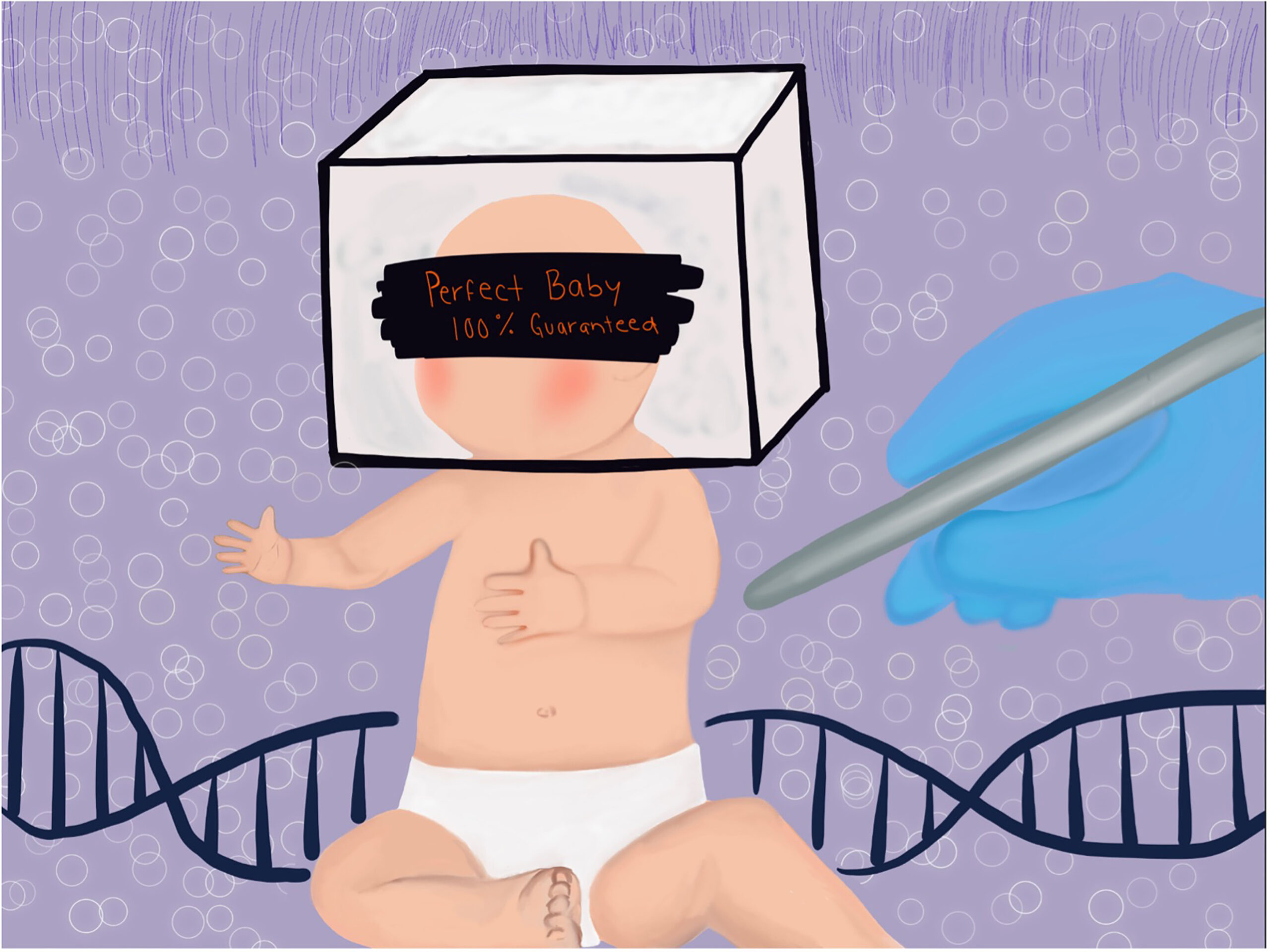
By Rosa Lopez
Trinity Times Correspondent
When parents are expecting a child, they frequently express their dream for the “perfect baby,” and the science is evolving to make that close to a reality.
The notion of designer babies is expressed throughout different media and the possibility of gene editing on humans has become a real-world likelihood.
The question that arises is should this scientific innovation be used to enhance the genetic structure of human embryos and who gets to decide if this is moral?
It’s an inquiry that’s analyzed in universities around the world, including Trinity Washington University, because of the ethical implications of genetical alterations for the human species.
Gene editing technology is currently used to treat genetic diseases like sickle cell anemia and Huntington’s disease, which the world’s medical community has deemed ethical uses, since it’s utilized to improve the health of living humans.
Scientists, however, continue to wrestle with the integrity of the use of this technology to alter the physical traits of a healthy fetus, fearing so called designer babies could lead to a eugenic society, which can be defined as a set of beliefs aimed at improving the genetics of the human population by selective breeding or sterilization.
Gene editing should be regulated to ensure safety and ethical considerations are met, said Steven Gable, associate professor of philosophy at Trinity.
“In my view, the global community of doctors, scientists, ethicists, and government leaders should first arrive at a consensus about which, if any, therapeutic interventions or enhancements should be pursued by means of the genetic editing of human embryos,” Gable said. “Then, based on this consensus, the global community should formalize international laws and agreements to regulate future applications of this rapidly developing technology.”
Gene editing is currently taught at Trinity in various biology classes from entry level to 400 level courses.
“Normalizing gene editing can drastically change the world,” said Maria Solache-Nava, a Trinity junior studying biochemistry who recently completed a genomics class where the moral implications of gene editing were analyzed. “It can be a good thing when addressing diseases. However, when it is used to alter physical appearances, it can be misused.”
The ethical use of this technology to alter the physical or genetic superiority of human embryos is frequently debated as advances are made.
“Because altering genes in this way will affect genetic diversity and reproduction rates in future generations,” Solache-Nava said. “It may also cause a gene race among several countries to create the “best” human.”
Another concern about making gene editing available to alter the physical or enhance the genetic makeup of human embryos is about funding the procedure for those who want it.
The expense would most likely be high, which raises the concern that it will be out of reach for people with moderate to limited resources.
Unless other sources of funding are made available for people who can’t afford the procedure, it creates a scenario where those with great wealth will have genetic dominance over the rest of the population.
Opponents to making this type of gene editing available to the masses have imagined a completely different class of people who are not only richer but are also designed to fit into the culture’s idea of perfection, leading to an ever-greater divide in society.
With this notion as a concern, Canada implemented a law in 2004 that prohibits gene editing that “alters the genome of a cell of a human being or in vitro embryo such that the alteration is capable of being transmitted to descendants.”
The implications of gene editing for social justice and equity must be considered.
“One fear is that increasing technical proficiency in the genetic manipulation of human embryos will lead wealthy parents and governments to pursue enhancements in intelligence, strength, and athletic/artistic abilities, which could lead to greater social and economic disparities as well as to international tensions,” Gable said.
“Another fear is that scientists do not yet fully understand how genetic editing at the earliest stage of human embryonic development can affect the genetic makeup of subsequent generations,” he said.
Trinity students and the greater population should be more informed on gene editing and the ethical considerations around gene editing for reproductive purposes, Gable said.
“Each member of the Trinity community should learn as much as possible about CRISPR (Clustered Regularly Interspaced Short Palindromic Repeats) technology, as well as the ethical dilemmas it presents,” he said, “since it will undoubtedly shape the future development of both reproductive and specialized medicine and could profoundly transform social and international dynamics.”